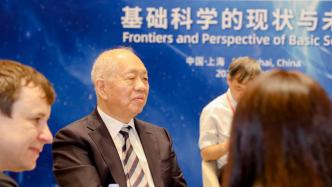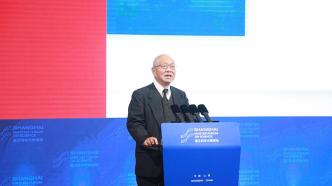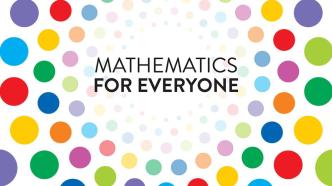
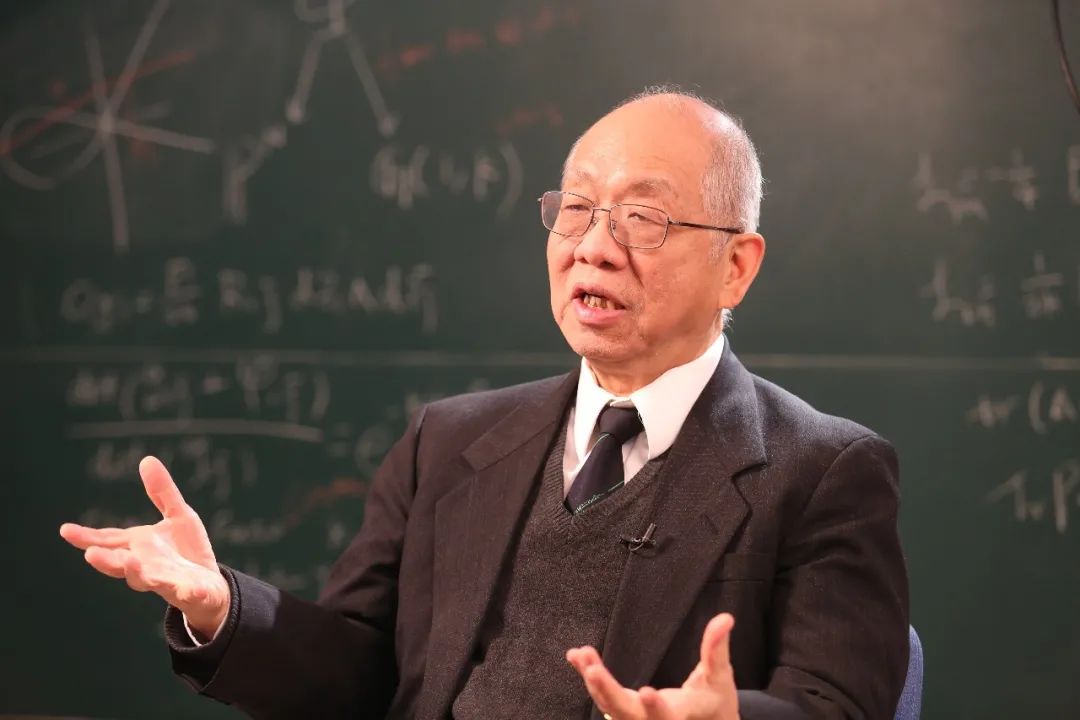
Fields Medal winner, Director of Tsinghua Yau Mathematical Sciences Center, Professor Yau Shing-Tung.
March 14, 2023 is the International Day of Mathematics (International Day of Mathematics), also known as "π Day (Pi Day)". Draw a circle with a diameter of 1, then the circumference of this circle is 3.1415926535... a number called Pi (π).
The theme of this year's International Mathematics Day is "Mathematics for Everyone".
According to the news from Tsinghua Yau Center for Mathematical Sciences, on the evening of March 14, Professor Ivan Fesenko, a well-known number theorist, had a conversation with Fields Medal winner, Director and Professor of Tsinghua Yau Mathematical Science Center, and Tsinghua Yau Mathematics Professor Caucher Birkar, a professor of the Science Center, shared his mathematics learning experience, talent training concept and scientific research experience.
Qiu Chengtong said that what he liked when he was young was history, and later, under the influence of his philosopher father, he realized the simple and beautiful logic of mathematics. "I want to shape students comprehensively, not just in mathematics." Qiu Chengtong said.
Qiu Chengtong read the history of mathematics in the past 100 years and found that many mathematicians started mathematics research at a very early stage, so he told the government that some projects should be launched to allow some high school students with mathematical talents to enter universities for research earlier.
According to the official website of Tsinghua Qiu Chengtong Mathematical Sciences Center, Qiu Chengtong was 33 years old when he won the Fields Medal. The Calabi conjecture he solved is called the Calabi-Yau space (Calabi-Yau, Yau is Yau's English surname) in the mathematics and physics circles. It is not only the main tool in algebraic geometry and number theory, but also a high-energy space. The main model of the universe in physics. The Calabi conjecture has been proved to be the century-old dream of countless mathematicians, and it is the legend of "geometric analysis", an extremely important branch of mathematics, which continues and flourishes today.
Yau Shing-Tung was born in Shantou, Guangdong Province in April 1949. He was admitted to the Department of Mathematics of the Chinese University of Hong Kong in 1966 and obtained a bachelor's degree in three years. In 1969, he went to Berkeley to study for a Ph.D. He is currently a tenured professor of the Department of Mathematics and Physics of Harvard University, director of the Center for Mathematical Sciences of Tsinghua University, and dean of the Beijing Yanqi Lake Institute of Applied Mathematics. Qiu Chengtong is an academician of the American Academy of Sciences, an academician of the American Academy of Arts and Sciences, a foreign academician of the Chinese Academy of Sciences, a foreign academician of the Russian Academy of Sciences, and an academician of Taiwan's "Academia Sinica".
Ivan Fesenko, a famous number theorist, was educated at St. Petersburg State University in Russia. Since 1995, he has been a professor of pure mathematics at the School of Mathematics, University of Nottingham, UK, and is currently a professor at the University of Warwick, UK.
According to the relevant website of the University of Nottingham in the United Kingdom, Kochel Birka studied under the guidance of Ivan Fesenko. Kaucher Birka grew up in a rural village in the Kurdish region of western Iran. In his final year of undergraduate studies at the University of Tehran in Iran, he came to the UK to seek political asylum. Professor of Mathematics. In 2018, Kochel Birka received the Fields Medal, an honor given every four years by the International Mathematical Union to the world's most accomplished mathematicians. This was the first time in about 20 years that a British mathematician had won such a medal, and it was also the highest honor in mathematics. The Fields Medal is similar to the Nobel Prize in other scientific fields.
Falling in love with mathematics under the influence of loved ones
During the conversation, the three mathematicians unanimously stated that they were originally related to mathematics and relatives.
Qiu Chengtong said that before going to university, he liked history very much. But later, at the age of 16, he decided to enter the field of mathematics. "My father was an excellent philosopher. He showed me how Greek philosophers were influenced by mathematics." Under the influence, he realized the simple and beautiful logic of mathematics, "Based on simple logic, we can deduce beautiful propositions that we believe to be true in life."
Kochel Birka said that he was influenced by his brother who was good at engineering and physics. "From a very young age, he began to teach me some advanced mathematics and physics. When I was in high school, I thought I I would go into physics, but then I slowly realized that the reason I like physics is actually mathematics. So I turned to mathematics from about 15 years old.” Ivan Fesenko recalled that he was influenced by his father when he was a child Encouragement, start reading a lot of math and physics books.
Fields Medal winner is not an alien
Qiu Chengtong and Kocher Bilka also shared the process of winning the Fields Medal and the impact of the award on themselves.
Qiu Chengtong said that it was his father who received the relevant information first and then called him.
Kochel Birka said that he first learned about the Fields Medal when he was in the mathematics club at the university. He asked himself at the time: "Will I meet the Fields Medal winner?" "Later, in the UK When I was doing my Ph. D., I met some Fields Medal winners, and I found out that they are also human, and they look like ordinary people, not aliens ."
"It is a great honor to receive such a prestigious award, in the sense that it is not only a recognition of your work but also puts you in a position of actually being more responsible . . . you have to be involved in activities to bring mathematics to the masses, and it takes up some research time, but I think it’s worth it.”
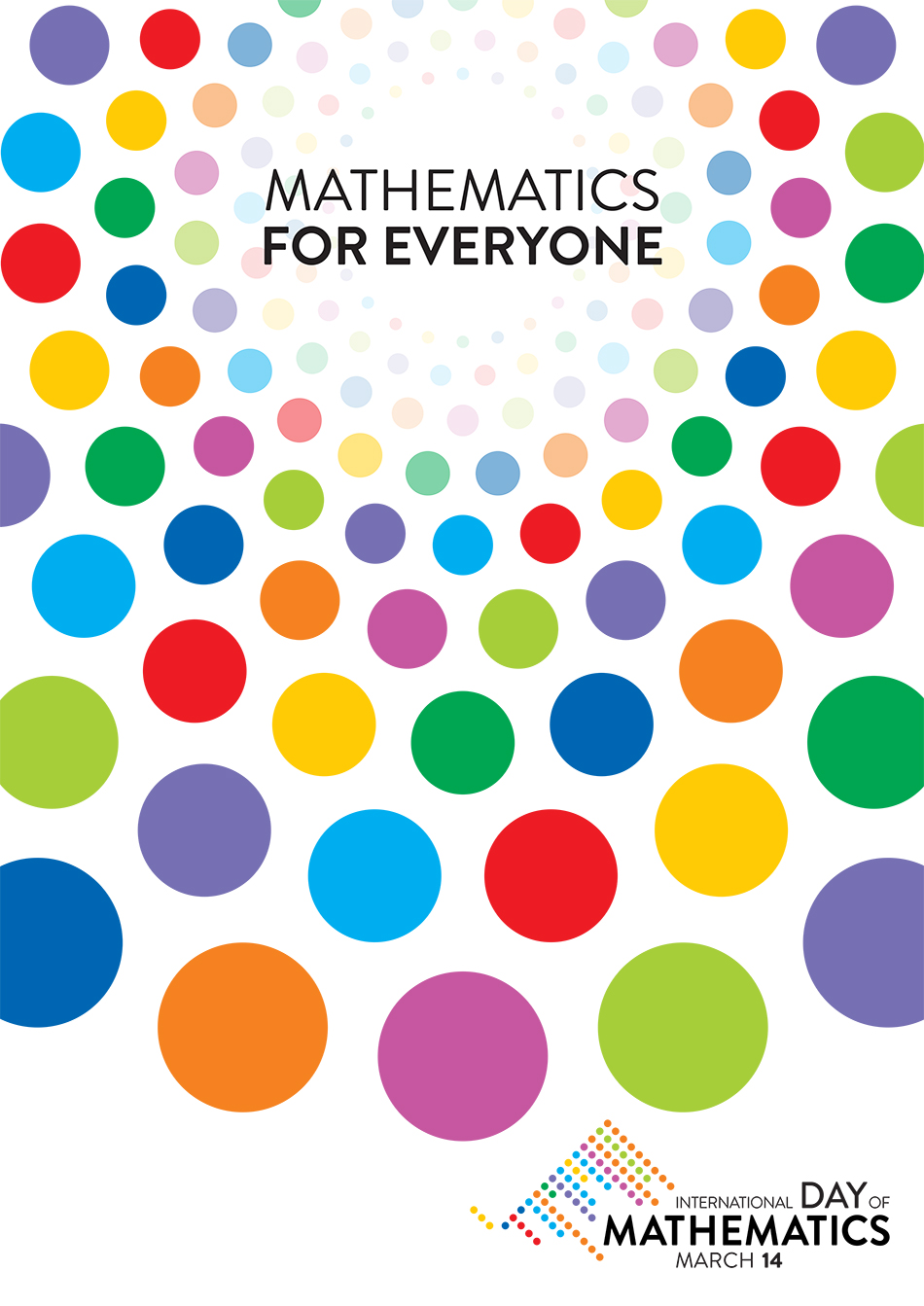
The theme of this year's International Mathematics Day is "Mathematics for Everyone".
Qiu Chengtong: "I want to shape students comprehensively, not just in mathematics"
Talking about the concept of talent cultivation, Qiu Chengtong reviewed the inspiration he got in his life. He said that neither of his children was interested in math when they entered high school. I like biology, because this competition inspired them and let them see the creativity of biology. Therefore, I hope that similar competitions can be organized in the field of mathematics, (so that) some students are inspired by the competition and start to engage in mathematics research earlier .”
Qiu Chengtong said, "Many high school students spend too much time preparing for the college entrance examination." "I read the history of mathematics in the past 100 years and found that many mathematicians started mathematics research at a very early stage, so I told the government that it should start Some projects can allow some high school students with mathematical talents to enter universities to do research earlier ." "We started the trial four years ago, and the subjects are in their final year of undergraduate study, and so far, they've done well."
In addition, he began to design his own examination papers, which tested students' abilities in both mathematics and physics. "Why physics? Because in the past 50 years, countless mathematical inspirations have come from physics." Qiu Chengtong said.
In addition, "I want to shape students in an all-round way, not just in mathematics. Therefore, two years ago we began to design a system to train students in mathematics, physics, literature, and law. Let students be more Get a good understanding of the entire academic system. Some of the students we train come from well-known middle schools, and some come from unknown villages." "I will give 1-2 lectures a week, teaching mathematics, and we will also teach biology and humanities." Qiu Chengtong Said, "We hope this project can bring more mathematical talents to the world. We welcome talents from all over the world."
Kochel Birka said that he agreed with Yau Shing-Tung's view that "mathematical research can be started earlier". He said, "I taught undergraduates last year and found that they were very ambitious. I think this is very important. It means that you have a bigger goal in mind. As Yau said, if students can be at an earlier stage, such as high school, Just start doing research, which I think is great, why not?"
Ivan Fesenko added: "I gave the students some hard problems and they were able to do them. One of the problems was 'solve it and get a million dollars'."
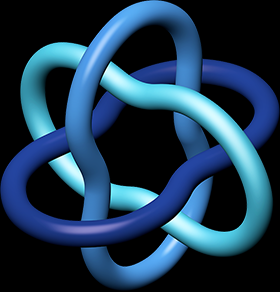
International Mathematical Day is a project led by the International Mathematical Union.
Ivan Fesenko found that in the process of cultivating their children's mathematics ability, many Chinese parents would send their children to the United States. He said: "I would like to say to parents all over the world that there is no place more suitable for learning mathematics than Tsinghua Yau Mathematical Sciences Center. I don't know why Chinese parents think it is better to send students to the United States. I think it is better to send students to Tsinghua Yau Mathematical Sciences Center." Center would be better."
In this regard, Kocher Birka agreed. He said: "I have taught at Cambridge University for more than fifteen years. I can say that Chinese students perform similarly to Cambridge students."
For young math learners, three professors offer their advice. Qiu Chengtong believes that 90% of great mathematicians have met great mathematicians when they were young. Ivan Fesenko said that for Chinese young people, coming to Tsinghua Yau Mathematical Sciences Center to meet Yau Shing-tong is a good learning opportunity. Qiu Chengtong added, "No, not only young people in China, we welcome talents from all over the world to Tsinghua."
Both Negative Emotions and the Subconscious Are Research Motivators
When talking about how to deal with negative emotions in research, Yau Shing-Tung said that negative emotions are very important, and motivation will drive people to conquer difficult problems, "so I will fall in love with difficult problems."
Kosher Birka says he turns his anger into motivation to do more math work, which helps him focus more on problem solving. "Mathematics is like exercise, and the pleasure it creates helps learning."
At the end of the conversation, Ivan Fesenko asked a question that Qiu Chengtong thought was very interesting, "Which one is more important to you, conscious or subconscious, when doing mathematical research?"
Qiu Chengtong said, "Intuition is important in every field. Everyone will feel intuition from their culture, and feel intuition from mathematics learning."
Kocher Birka also talked about the role of intuition and subconscious mind in his own research: "I tend to use geometric methods when solving problems. When I use geometric methods, I will generate more intuitive inspiration. And algebra is often used as an afterthought to test those inspirations, so I almost never discover something new just by looking at algebra."
In this regard, Ivan Fesenko's thoughts are very similar, he said: " I think algebra is beautiful, but a little cold, so I will use geometry, it makes me feel warmer, and here I can use more subconscious , generating more intuitive inspiration.”
